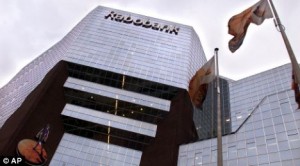By Simeon Kerr
As financiers seek to diversify their fee bases, investment banks are scenting an opportunity in Gulf states’ eagerness to secure long-term food supplies in the form of agricultural investment deals.
Christopher Hawley, a director at Rothschild in Dubai, says his advisory house is bringing potential investments in Brazil, Australia and eastern Europe to the attention of clients who want to turn petrodollar surpluses into assets that can secure staples such as wheat and rice.
These so-called food security investments, particularly direct land ownership, are fraught with political risk. Mr Hawley does not disclose whether he has closed any such deals.
Investment banks miss out on the farmland deals made directly between governments, but corporate arrangements could prove lucrative.
Many states that are agricultural exporters need injections of capital to boost yields and help develop infrastructure, but investors run the risk of being labelled neo-colonialists. Sudan provides an example. Saudi Arabia, Qatar and the United Arab Emirates have said they could pour tens of millions of dollars into the African nation, leasing farmland that many hope will become the bread basket of the Arab world.
But amid censure over the civil war in Darfur, Khartoum is receiving emergency food aid even as it sells land that some people fear could be reserved for exports. “That’s a great challenge. As we advise on investment strategy, these issues have to be taken into consideration,” says Mr Hawley. “Investors should follow best practice.”
Other Muslim states, such as Egypt, Indonesia, Pakistan and Turkey, are the main focus of Gulf attention, thanks to proximity and trade ties, but the hunt is extending into Asia and Africa – and Zimbabwe in particular.
This former agricultural powerhouse is tentatively emerging from the traumas of Robert Mugabe’s regime, with the opposition sharing power, and that has persuaded some Gulf states to consider Zimbabwe a potential addition to their overseas portfolios.
“Zimbabwe has a real tradition in agriculture. They know how to run the business. There is a well-established export infrastructure through roads and trains. It’s just that no one has been bothering to do it for the past 10 years,” says another banker, who asked not to be named.
Oil-exporting states know that their main exports, crude and petroleum products, are needed in Zimbabwe and across Africa. Benessia Petroleum, a Qatari group, floated the idea of building a refinery there almost two years ago, but progress has been slow.
Rothschild, which has a partnership with Rabobank, the Dutch lender, to co-operate in food and agriculture mergers and acquisitions, urges investors to tread carefully. A government in Madagascar collapsed partly because of a land deal with a Korean company, and Qatar has faced opposition in Kenya.
But Gulf states know how fast their populations are expanding and recall the murmur of dissent across the region last year when inflation soared, forcing some governments to try to cap staple food prices and others to impose export restrictions.
“Because of the food requirements of the region, and the capital requirements needed for developing counties, both sides can benefit,” says the banker. “This issue isn’t going away, but there is a real need for responsible investors. The political backlash could be very significant.”











